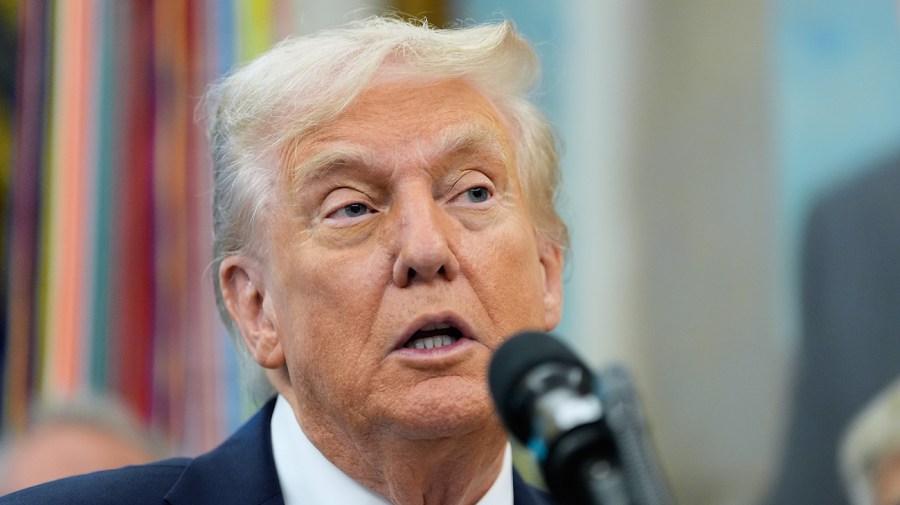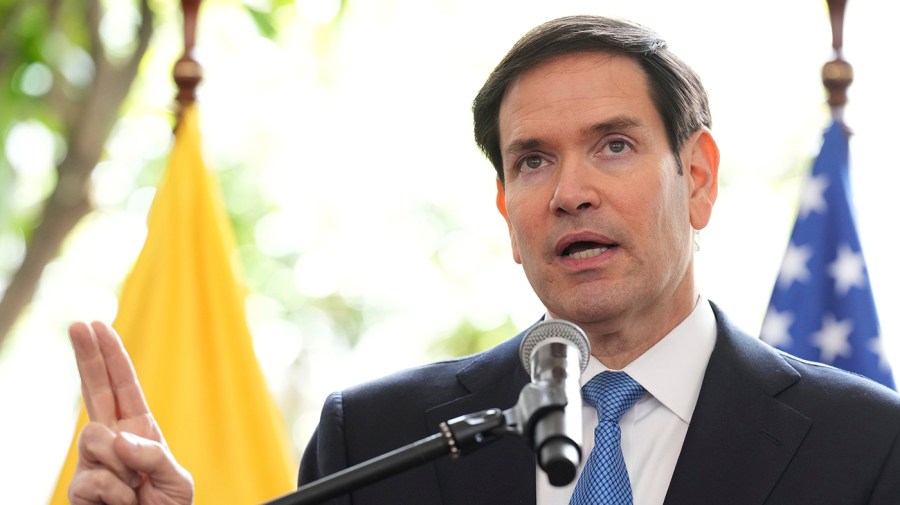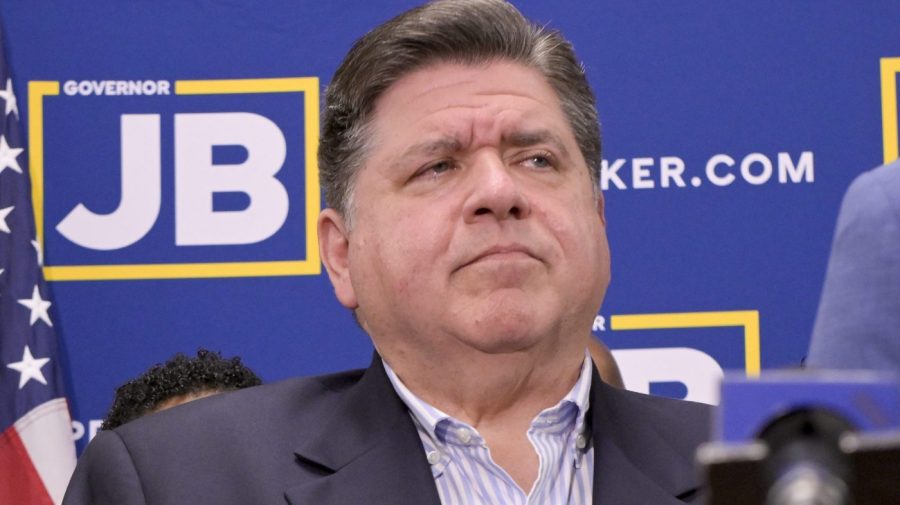President Trump’s push to expand and consolidate power is ramping up on multiple fronts, even as the government shutdown holds center stage on Capitol Hill. Trump’s actions are sharpening critics’ fears about creeping authoritarianism.
The shutdown and Trump’s expansive use of power are interlinked in some respects. Trump has sought new ways to ratchet up pressure on Democrats, who say they won’t accede to Republican demands to reopen the government in the absence of changes in health care policy.
On Friday, Trump’s budget director, Russell Vought, announced that $2.1 billion in federal funding for infrastructure projects in Chicago would be withheld.
This came soon after $18 billion was paused in similar circumstances for New York City.
The measures were ostensibly related to the use of race-based or other diversity, equity and inclusion (DEI) policies. But Chicago and New York are Democratic strongholds and frequent targets of the president’s rhetorical ire, so the moves on spending are plainly perceived as a new front in the shutdown battle.
Trump and Vought have also threatened to carry out mass layoffs of federal workers, a break from shutdowns of the recent past during which workers were furloughed.
Actions pertaining to the shutdown are only one facet of an overall Trump approach that has stirred concern about freedom and civil liberties — even as he and his allies defend them as being in the national interest.
On Friday, White House press secretary Karoline Leavitt said Trump had directed Secretary of Defense Pete Hegseth to “provide all necessary troops to protect war-ravaged Portland.”
The homicide rate in Portland, Ore., has declined 50 percent this year to date, according to statistics from the city’s police bureau. Data from the FBI indicates the city ranks 72nd nationwide for per capita violent crime.
Despite that, Leavitt said Trump had directed his aides to begin reviewing aid to Portland that could potentially be cut. “We will not fund states that allow anarchy,” she contended.
On Saturday, a federal judge stopped Trump from deploying the National Guard in Portland for the moment. District Court Judge Karin Immergut found that Team Trump’s argument for the necessity of such a move “was simply untethered to the facts.”
Trump nominated Immergut to her position during his first term. White House Deputy Chief of Staff Stephen Miller nonetheless branded the judge’s Saturday ruling “legal insurrection.”
Meanwhile, The Washington Post late last week revealed details of a proposal made by the administration to some colleges and universities.
The basic offer was that colleges could maneuver themselves into a preferential position to receive federal money if they also signed on to Trump’s “Compact for Academic Excellence in Higher Education.”
The price in academic freedom would be significant, however.
One provision holds that all university employees must, in their official capacities, “abstain from action or speech relating to societal and political events” except where those events directly impact the colleges.
Another measure called for “abolishing” any units within a university that “belittle” conservative ideas — a hazily defined concept, at best.
A third measure, equally unspecific, called for colleges to screen out potential foreign students who “demonstrate hostility to the United States, its allies or its values.”
In a lengthy riposte on social media, free-speech organization the Foundation for Individual Rights and Expression argued that “overreaching government coercion that tries to end-run around the First Amendment to impose an official orthodoxy is unacceptable.”
There are several other ongoing furors about the president’s propensity to use his power in unusually personal ways.
Trump’s pursuit of former FBI Director James Comey has produced new revelations in recent days.
Two senior prosecutors in the Eastern District of Virginia have been fired. One of them, Michael Ben’Ary, had come under attack from a pro-Trump figure on social media for allegedly being resistant to the indictment of Comey.
In a farewell letter to colleagues, obtained by the New York Times, Ben’Ary complained that the current leadership of the Department of Justice “is more concerned with punishing the President’s perceived enemies than they are with protecting our national security.”
Separately, Reuters reported that an FBI agent had been relieved of duty for refusing to arrange a “perp walk” of Comey.
In an even more bizarre case, the head of former President Eisenhower’s presidential library was forced to resign Monday. The cause, at least in part, appears to be his refusal to give a sword from the library to be presented by Trump to Britain’s King Charles III.
Simultaneously, events on the world stage have caused consternation even among some conservatives, who are wary of extrajudicial military actions without congressional approval.
Hegseth announced yet another strike by the U.S. on a shipping vessel off the coast of Venezuela on Friday. He posted a video of the apparent strike on social media, saying it had been carried out on Trump’s orders and that “our intelligence, without a doubt, confirmed that this vessel was trafficking narcotics.”
No evidence was provided to support that claim — a fact that has been true of some of the other incidents that have brought the total of people recently killed by the U.S. on four vessels to 21.
Sen. Rand Paul (R-Ky.) got into a public social media tussle with Vice President Vance last month after a previous, similar strike. Vance contended the killing of alleged drug cartel members “who poison our fellow citizens” was “the highest and best use of our military.”
Paul shot back: “What a despicable and thoughtless sentiment it is to glorify killing someone without a trial.”
There seems no possibility of Trump changing course now.
The first months of his second term have been notable for the pace and scale at which he has sought to consolidate his own powers.
He argues that he is following through on the will of the voters who elected him.
But critics, including some former Republicans, see it very differently.
“There is no doubt in my mind that he is intent upon destroying all of the historical guardrails of American democracy,” said John ‘Mac’ Stipanovich, who for decades was a prominent GOP operative in Florida.
“We live in perilous times.”
The Memo is a reported column by Niall Stanage.














